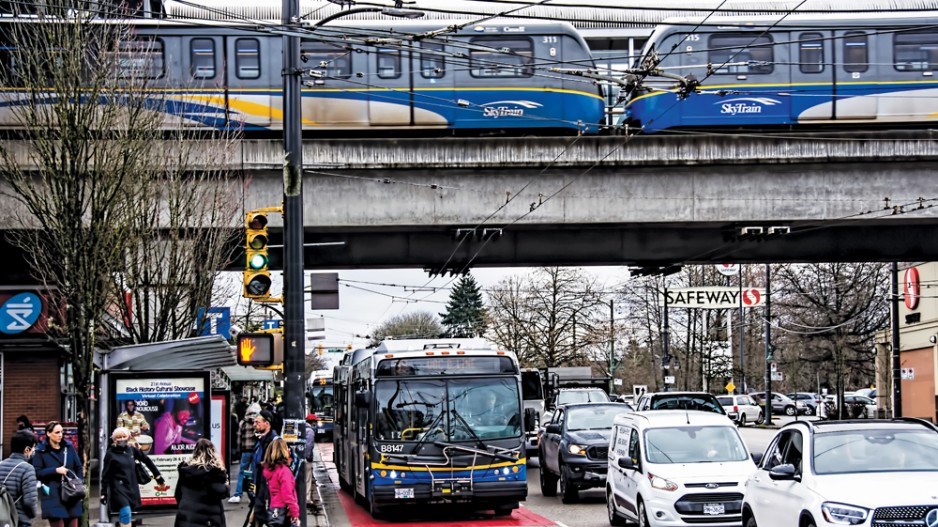The provincial government’s efforts to boost B.C.’s housing supply may be facing a staffing-related bottleneck.
A lack of city planners and planning experts across the province has left some municipalities struggling to navigate an influx of new provincial legislation related to housing, densification and transportation, according to those who spoke with BIV.
“There’s a groundswell of need for planners and a groundswell of workload,” said Emilie Adin, president of the Planning Institute of British Columbia (PIBC). “You can’t sacrifice quality on the altar of efficiency and I’m worried that there may be unintended consequences with these efforts.”
PIBC had roughly 2,022 active members of all types at the time of writing, according to the institute.
On PIBC’s website, there was a 93-per-cent increase in the number of posted job openings from 2020 to 2021, and an additional increase of 20 per cent each year following 2021, according to Adin.
Andy Yan, director of Simon Fraser University’s City Program, described the issue as a “perfect storm.”
“You now have this lack of planners, and I think part of it is a lack of experienced planners, and at the same time you suddenly have this huge amount of work that is being put on [municipalities] by the provincial government,” he said.
This work is thanks to legislation for transit-oriented development and small-scale multi-unit housing, new short-term rental regulations and the assignment of housing targets under the Housing Supply Act, among other initiatives.
Different pieces of legislation have different deadlines for implementation in local communities. For example, the deadline for municipalities to enact short-term rental regulations is May 1, 2024.
There are, however, some exemptions for smaller communities. Those with populations under 5,000 do not have to implement legislation to allow for multiple units on single-family lots, and communities with fewer than 10,000 residents are exempt from the principal-residence requirement for short-term rentals.
Housing Minister Ravi Kahlon acknowledged that a planning staff shortage is a “real challenge” for communities.
“We are actively ensuring there’s dollars available so that more people get trained up to become planners and we’re fast-tracking immigration possibilities with peoples of planning experience,” he told BIV.
The B.C. government has allocated $51 million in grant-based funding from Budget 2023 to local communities to help them implement new housing-related legislation.
Kahlon is also encouraging local communities within regions such as the Capital Regional District or Metro Vancouver to work together if they are unable to access the expertise they need within their respective boundaries.
Larger municipalities and urban regional centres have the resources to access a lot of planners, said Art Kaehn, the Regional District of Fraser Fort George director for Woodpecker-Hixon.
“When you move into very small communities, they are extremely challenged to find a planner or have staff that sort of acts as a planner,” he said.
This leaves communities that are in the middle tier most at risk, said Yan.
As a result, planners are having to triage, according to Adin.
“It’s a very tough time in a lot of ways, and people are worried about another wildfire season, about seismic issues and other aspects of climate change. So, they’re already caught up in a lot of really important planning work,” she said.
This could create opportunities for private and contractor urban planning companies such as Urban Systems and McElhanney Ltd. The latter is used by Kaehn’s regional district for outsourced work, he said.
“It’s tough to get consultants as well. They’re also having a hard time hiring planners and some of them are full up,” said Adin, adding that demand for these planners—and the cost to hire them—continues to rise.
“For certain municipalities—the ones in the middle—there might not be a silver-bullet [solution].”





